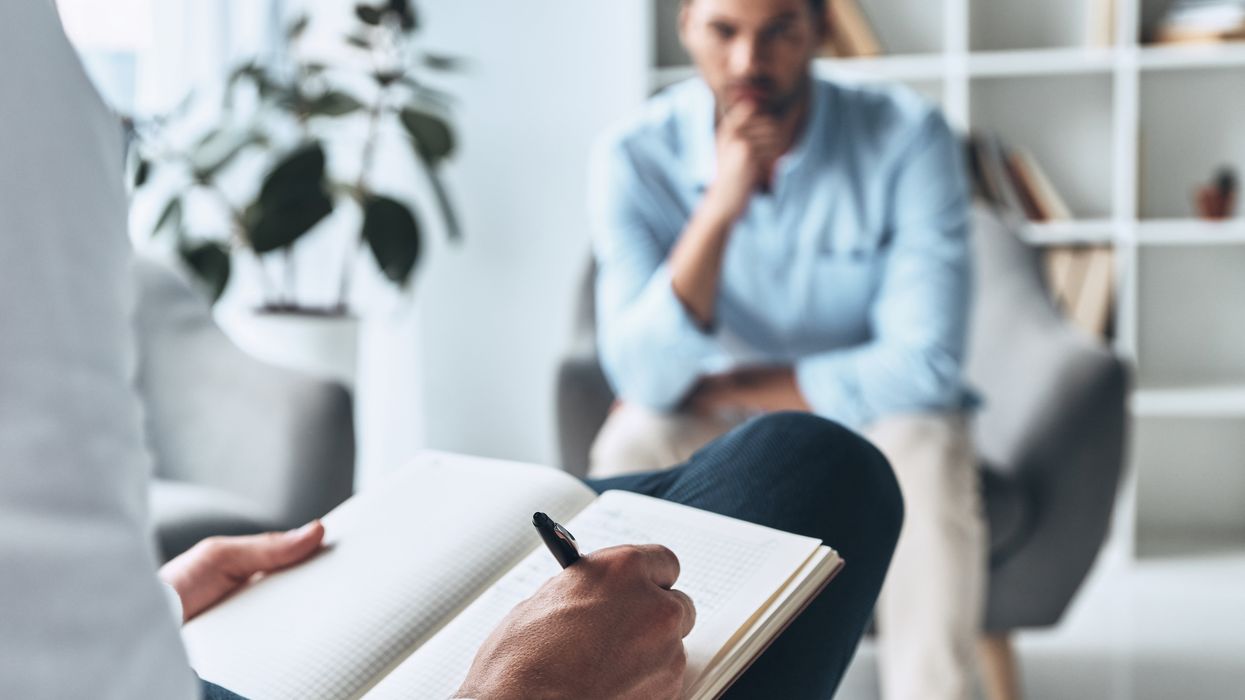Trigger warning: Contains content that may be sensitive for some readers.
While 2021 had its positive quirks, it’s safe to say that the last 12 months were somewhat challenging for the most part.
We entered the year with the return of restrictions – subsequently, putting a promised Hot Girl Summer on the backburner.
Countless Covid variants made their way across the world, forcing people to put their plans on an uncertain standstill, yet again. We briefly got a glimpse of our work offices before reluctantly returning to our beds for our so-called ‘new normal.’
Unfortunately, the world’s news was just as bleak, with Trump supporters storming the Capitol, the devastating Israel-Palestine crisis and Afghanistan falling to the Taliban – to name a few.
With a lack of freedom and the saturation of devastating news, the world could benefit from a collective therapy session to pick up momentum for 2022.
Indy100 turned to the experts – who were faced with the worries, concerns and addictions – to reflect on their key talking points across the last 12 months.
Sign up to our new free Indy100 weekly newsletter
Gambling addiction – Javier Barranco (LAPC), a lead clinician at the Berman Center
“Gambling disorder became one of the most insidious phenomena to emerge in 2021 on the scene of mental pathology – especially with adult male clients,” Javier said, adding that isolation was the biggest risk factor.
“As a clinician who employs Cognitive Behavioral Therapy (CBT) and Dialectal Behavioral Therapy (DBT), gambling seems to be resistant to both of those evidenced-based modalities long-term.
“Society is quickly changing when it comes to the integration of gambling websites, sports betting, as well as online casinos. You can’t even go a commercial break on network television anymore without gambling outlets being in your face and framing themselves in an alluring fashion that ensnares people predisposed to this disorder.”
As a clinician working in Atlanta, Javier has witnessed the increased census of men signing up for and successfully completing recovery programmes. “The good news is they are getting better, healing, and living more pleasant and fruitful lives,” he said.
Javier explained that many people are finding solace and success through support groups. “Gamblers anonymous is a 12 step program that I highly recommend and is quickly exploding with new members,” he added.
Tip for 2022: “Try using your wise mind by asking yourself three questions before deciding to place a bet or gamble:
- What emotion are you currently experiencing?
- What goals are you trying to accomplish in this situation?
- How can you proceed mindfully in an adaptive way (always set limits, track your betting, and stop when you hit your limit)?”
Health anxiety – Nichola Henderson, Holistic Life Coach & Wellness Specialist
There’s no surprise that anxiety has been through the roof over the last 12 months. Nicola explained that health anxiety, in particular, has been incredibly prominent with serious detrimental effects.
“It’s common for people to be too afraid to leave the house and only do so when absolutely necessary,” she said.
“For some, the pandemic has been a long period of time fuelled with fear: What if I catch Covid? What if I give it to a loved one? What if they end up with long covid?”
“Usually, it is tough to break the cycle as the repetitive cycle of ‘what if’ reinforces it, and the longer it continues, the harder it is to change. However, there is always a way.
“I’ve helped clients transition through the worst cases to now finding a manageable way to live. It’s a journey for a lot of people.”
Tip for 2022: “Take between 5-20 mins every day to be mindful in some way, then combine this with a personal mantra - it can be really powerful,” Nichola advised.
“Something like a mindful walk where you take your time, really take in everything around you repeat something like ‘I am here, I am alive and I will look after my mind and my body as best I can’ this helps reinforce gratitude whilst also inviting self-care and healthy habits.
“Reinforcing this is crucial. Repetition is so powerful when building new behaviours or habits.”
Strains on relationships – Clarissa Silva, Behavioral Scientist, Relationship Coach and Creator of Your Happiness Hypothesis Method
“Covid-19 has created many strains across our personal lives and, for some, especially their relationships. As your relationship evolves, less time is spent on impressing one another. It becomes more about making life happen and our busy schedules.”
Tip for 2022: “When you feel that your relationship is facing challenges, try re-creating your first date at home. It is nostalgic of the beginning of your relationship, but it also brings you back to that ‘this is why I fell in love with you.’”
“When your partner does something romantic, it does bring you back to the ‘I am grateful to have you as my life partner and am honoured to have you in mine.’”
Eating habits – Ruth Micallef, Unhelpful Coping Modes - Eating Disorders Ruth Micallef (MBACP Reg), Sub-Specialised Eating Disorders Counsellor
“Covid-19 is a global trauma for us all, and one which simultaneously stripped us of many of our healthy ways of coping,” Ruth said.
“Restricted to home and away from green space, separated from loved ones, and with a lack of diversity in our days, many of us turned to damaging and accessible coping modes which allowed us to ‘self soothe’ and ‘detach’.”
Ruth explained that the pandemic brought an overwhelming influx of patients, specifically with binge eating disorders. This forced her to close her waiting list three times. “With little else to do, many delved into these coping modes without even realising it,” she added.
Tip for 2022: “This new year, do not succumb to the diet culture around you. Instead, reach out to an accredited professional to help you process the reason you’re having to cope this way, whether it’s trauma and adversities from the past or the present.”
Excessive cleaning and compulsive behaviours – Haylie Yakrus (MS, APC, NCC), Berman Psychotherapy clinician
“Generalised anxiety disorders and those are feeding into other compulsive behaviours such as excessive cleaning, excessive fear around safety and secureness, as well as social anxiety.”
“As far as the excessive cleaning and awareness – that is definitely associated directly with the pandemic, specifically the early pandemic where we didn’t quite understand where the virus was transmitting.
“For a long time, there was a fear around: getting groceries, who touched the groceries, spraying off any Amazon packages – things along those lines.
“These behaviours taken from the pandemic have been exasperated through hyperawareness of the changing variants. New variants are causing more and more uncertainty around each of the individuals struggling with anxiety.”
Tip for 2022: Haylie encourages people to ask for help if struggling. “We’re seeing more people asking for help, and that’s a really unique and special thing for where we are in our world today,” she said.
“More people are leaning into mental health, whether that be taking breaks, asking for help, learning new skills to engage in the world.”
If you need information about mental health support and services that may be available to you, please call Mind’s Infoline on 0300 123 3393 or email [email protected].













